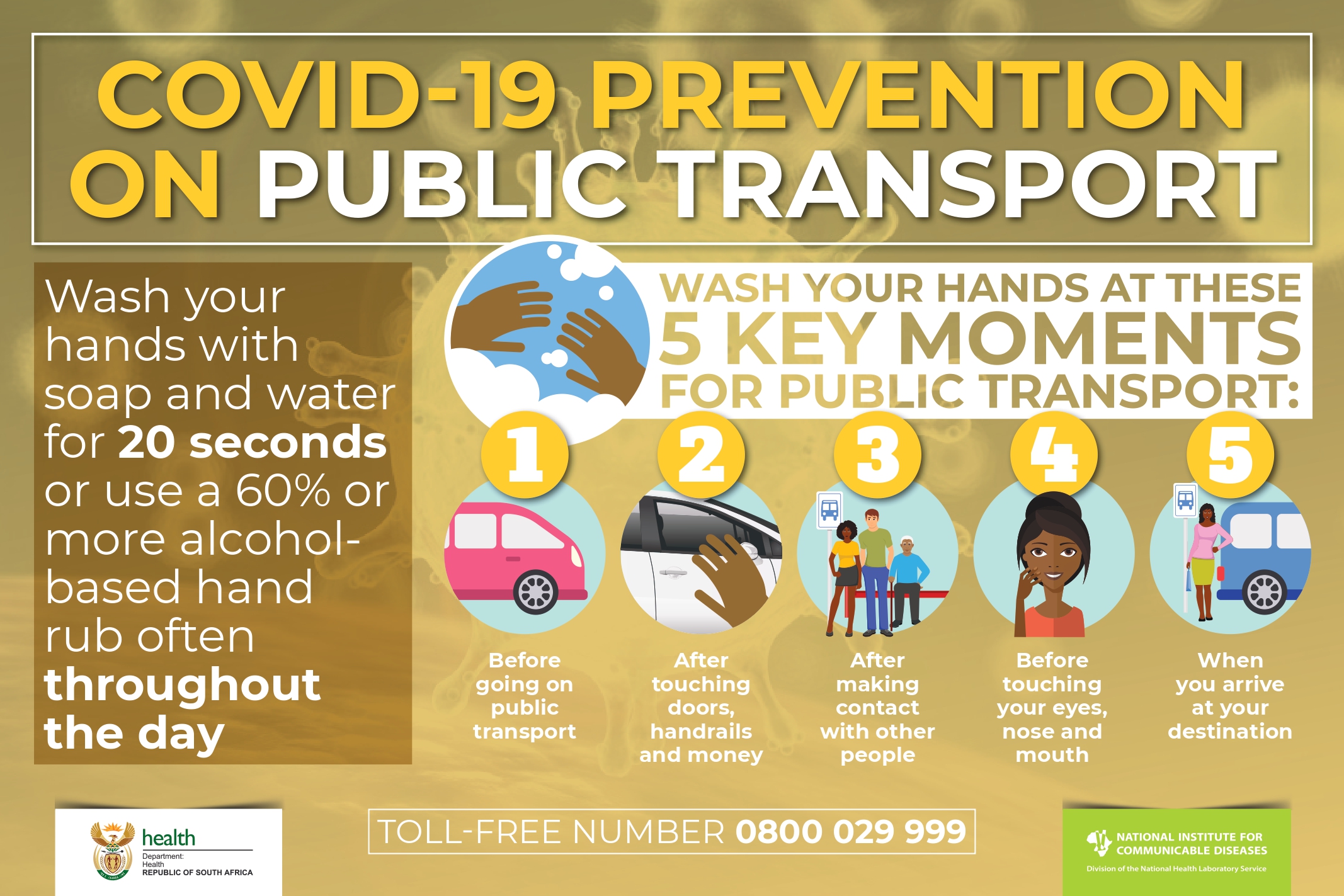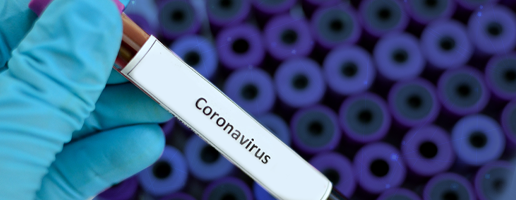Going back to work: How to protect employees against COVID-19

How can you protect your employees from COVID-19 when they return to work? The NICD has shared advice on how to create a safe work environment. They’ve also shared resources on wearing cloth face masks and staying safe on public transport.
As more parts of the South African economy begin to open up, employers are looking for ways to keep employees safe as they return to work.
The National Institute for Communicable Diseases (NICD) has shared advice and resources for employers on how to protect employees from COVID-19.
This includes safety measures to get the workplace ready as employees return, advice on how to stay safe when taking public transport, and guidelines on wearing cloth face masks.
Podcast: How employers can prepare the workplace
“It’s imperative that we responsibly restore the economy while working to flatten the coronavirus disease 2019 curve,” says Dr Ahmad Haeri Mazanderani in a podcast recorded for Discovery by the NICD and also posted on the NICD website. “With the proper precautions in place, the deployment of hygiene-enforcing tools and physical-distancing measures, much of the working-age population can return to work. This includes people who have recovered from laboratory-confirmed cases of COVID-19.”
Dr Mazanderani shares insight on what employers and employees should do when returning to work. “Hand hygiene is an essential component of providing a safe working environment. We should also make sure individuals who have a fever, cough or shortness of breath do not go to work,” he says.
“Physical distancing is something all workplaces should consider to make sure people are not overcrowded in rooms,” he adds. “If it’s not necessary for people to work from the office, if work can be done effectively remotely, then that should be prioritised.”
LISTEN to the podcast for more advice for employers and read our question-and-answer session with Dr Ahmad Haeri Mazanderani.
How to avoid catching COVID-19 on public transport
When employees go to work, it’s important that they stay safe on the way there – especially if they use public transport.
The NICD has identified five key moments during a commute when workers should wash their hands with soap and water for 20 seconds or use an alcohol-based hand sanitiser:
- Before going on public transport
- After touching doors, handrails or money
- After making contact with other people
- Before touching your eyes, nose and mouth
- When you arrive at your destination

These posters are available in multiple languages and can be downloaded for distribution around the workplace here:
Protect yourself and others by wearing a cloth face mask
The Department of Health has instructed all South Africans to wear cloth face masks that has three layers of fabric in public. Minister Zweli Mkhize has emphasised; however, that a cloth face mask is not the primary method of preventing COVID-19. It remains secondary to the most effective preventive measures, which are washing your hands for 20 seconds with soap and water, keeping a physical distance of two metres between you and other people at all times, and coughing or sneezing into a flexed elbow or a tissue. The goal of wearing a cloth face mask is to reduce the number of droplets that you spread when you sneeze or cough, and to limit the transmission of COVID-19.
The NICD recommends the following guidelines when wearing a cloth face mask:
- Do not touch or fidget with the face mask when you’re wearing it and avoid touching your face.
- Do not lower your face mask when speaking, coughing, or sneezing.
- Do not touch the inner side of the face mask while you’re wearing it.
- Face masks should cover your nose and mouth entirely.
- Wash cloth face masks with soap and water and iron when dry.
For the more information, read the dos and don’ts of wearing a cloth face mask.
To summarise, employers can keep employees safe by:
- Creating a safe workplace following national and global public health recommendations
- Educating employees on how to stay safe while taking public transport
- Sharing guidelines on wearing a cloth face mask when in public.
Visit the Discovery COVID-19 information hub for more advice for employers.
ALL MEDICAL INFORMATION FOUND ON THIS WEBSITE INCLUDING CONTENT, GRAPHICS AND IMAGES, IS FOR EDUCATIONAL AND INFORMATIONAL OBJECTIVES ONLY. DISCOVERY HEALTH PUBLISHES THIS CONTENT TO HELP TO PROTECT AND EMPOWER ALL SOUTH AFRICANS BY PROMOTING A BETTER UNDERSTANDING OF COVID-19.
Find a healthcare professional near you
Find a doctor or hospital near you online or by using the Discovery app.
Related articles

Outbreak of the 2019 novel coronavirus
The 2019 novel coronavirus (2019-nCoV) has caused an outbreak of fatal respiratory illness first detected in Wuhan, China. This is a completely new strain with no vaccines available. The best way to prevent infection is to avoid being exposed to this virus.

Understand the Novel Coronavirus (COVID-19) and prevent infection
No country is immune to the spread of the Novel Coronavirus - officially named COVID-19 by the World Health Organization (WHO). The outbreak has reached pandemic proportions and been declared a global public health emergency.

Novel Coronavirus - wash your hands of the threat
As toddlers, we learnt to wash our hands. But, did we ever master the skill to the extent that is needed to wash pathogens off our hands, and save lives? Multiple studies show people don't wash their hands at the right times, in the right way or for the right amount of time. We contaminate the things and people we touch with the germs we carry on our hands.